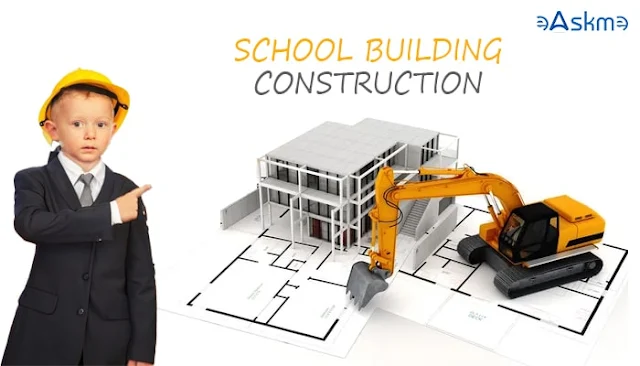Abu Dhabi - the capital of the UAE has become an ideal and favorite destination for real estate investment.
The steady economic condition, strong government support, cultural diversity, unique infrastructure, modern facilities, multiple opportunities, plenty of investment options, and a diverse range of properties make this city an attractive destination for potential investors and discerning home buyers worldwide.
Whether s/he is a beginner - taking the very first step in the real estate market, or an experienced real estate investor, the booming Abu Dhabi real estate market suits everyone as per their preferences, needs, and experience.
 |
| Buying Property in Abu Dhabi? Key Factors to Consider First |
Buying a property for the first time in the real estate hub of Abu Dhabi can be a complex and daunting task if you do not follow the process and consider some crucial factors.
Buying property in this dynamic city requires careful consideration and full attention.
Before purchasing a property, there are some key factors, every buyer should consider to make an informed and smooth decision about property.
Whether you are a starter or an experienced investor, this article will help you to make sound investment decisions about property in Abu Dhabi.
Key Factors To Consider Before Purchasing Property In Abu Dhabi
Buying a property is always a big decision in your life. This decision has an impact on your lifestyle, living standards, and even your future financial situation.
So, it is necessary to complete homework before making the final decision. If you are thinking about purchasing property in Abu Dhabi, here is a list of key factors to consider.
1. Understand The Difference Between Freehold And Leasehold Area
According to the rules and regulations regarding real estate investment in Abu Dhabi, the local emirates are allowed to purchase property or land anywhere in the city but ex-pats or foreigners can only buy property in some designated areas and these areas are known as freehold areas.
Here is the list of freehold areas:
- Yas Island
- Saadiyat Island
- Al Reef
- Al Reem Island
- Al Raha Beach
- Masdar City
After getting the idea about the freehold area in Abu Dhabi, the most crucial thing is to understand the difference between freehold and leasehold areas.
- Freehold Area: In freehold areas, expatriates or foreigners have complete ownership of the property in the designated areas.
- Leasehold Areas: In leasehold areas, the buyer has ownership of the property for some specific period which is usually 99 years. In a leasehold property, the buyer has long-term usage rights but not full ownership of the property.
After knowing this difference, the buyer will be able to make the right decision about the long-term property investment in Abu Dhabi.
2. Explore Real Estate Market
The Abu Dhabi real estate market has experienced significant growth over the past few years. The impressive progress and diverse range of investment opportunities mark this city as a real estate hub for potential investors.
If you are interested in investing and being part of this impressively growing real estate market then exploring this market is the most significant and crucial factor to consider.
Whether you are investing for the first time or you have expansive experience in this field, get information about market trends.
Explore the new opportunities and different offers. Analyze the market condition, what is the trend of the market, and which areas are more popular in offering various types of properties.
3. Research Various Property Types
Abu Dhabi real estate market offers various types of properties including apartments, villas, townhouses, flats, or penthouses.
Each property has unique features that suit the people as per their preferences. For instance, apartments are the preference of couples or small families and villas are suitable for large families as this property type offers more space and privacy to residents.
Explore different areas of the city that are famous for specific types of properties.
Some areas are famous for buying waterfront luxurious apartments in Abu Dhabi and some give you the best opportunity to buy spacious villas in Abu Dhabi.
After exploring different areas and various types of properties, you can decide which property is suitable for you.
4. Hire a Registered Real Estate Agent
If you are a newbie in the market or buying property for the first time in Abu Dhabi, then finding the right property can be a complex and daunting task.
So, it is advised to hire a registered real estate agent. A professional and experienced real estate agent can help you find the right property that meets your needs and expectations.
Real estate agents always have extensive knowledge of the market, they have information about market trends and have better opportunities.
By using their resources, they can narrow down the list of properties and find something that matches exactly what you need.
Moreover, you can also search for your desired property from an authentic leading platform like Abu Dhabi Sotheby's.
The professional and well-experienced team of this leading real estate company in Abu Dhabi can help you in buying property and making the right decision.
5. Plan Your Budget And Finances
Another crucial factor to consider in buying property is to plan your budget and finances.
You have to consider various expenses such as a down payment, which is typically 20-25% for expatriates, along with additional costs like property registration fees, agent commissions, service charges, and mortgage interest rates.
6. Legal Considerations and Required Documents
When you finally choose the property, negotiate the price, and make an offer with the former owner of the property, then the final step is to sign a Memorandum of Understanding (MoU) and pay a 2-10% deposit.
Then obtain a No Objection Certificate (NOC) from the developer and register the property with Abu Dhabi Municipality.
Required Documents:
- Age must be at least 21 years old.
- Legal Visa and UAE Passport ( for foreigners)
- Emirates ID Card ( for local Emirates)
- No Objection Certificate (NOC) from your employer
- Proofs of funds: Bank statements or a loan pre-approval letter
- Original Title deeds
Final Thoughts:
Buying property in Abu Dhabi is a rewarding investment if you proceed strategically.
Key factors like understanding the difference between freehold and leasehold areas, exploring market trends, researching various types of properties, checking the legal possess and considerations, analyzing your financial condition, and hiring a professional real estate agent play a vital role in making an informed, smooth, and beneficial decision about purchasing property in the capital of UAE - Abu Dhabi.


.jpg)


















